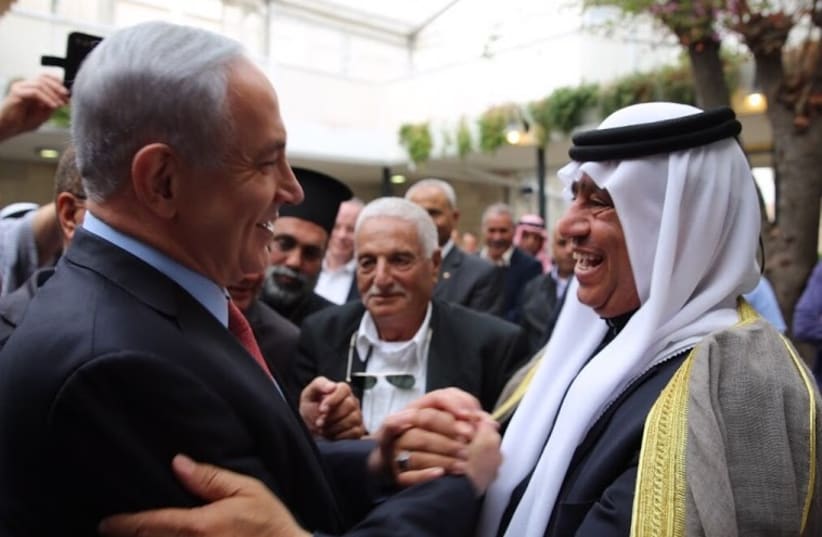We did, however, learn about the nakba (“catastrophe” – the common Arabic reference to the exodus of Palestinians upon the formation of the State of Israel) quite a lot.
Later, as new draftees into the Israel Defense Forces, we visited Yad Vashem, Israel’s national Holocaust museum.
It was only then that I truly began to comprehend the breadth of the atrocities committed against the Jewish people from 1939-1945. An entire world opened before me. What had been a far-away historic and emotional event became concrete and very close.
Although I am not Jewish, serving in the IDF became significantly more meaningful and important to me after that visit.
Every year since, it has bothered me that there is a disconnect in Arab-Israeli society, an apathy to Holocaust Remembrance Day and to the Shoah, and life goes on as usual. It is just unfathomable that 20% of Israel’s population doesn’t know about the Holocaust – an unprecedented historic event – and its connection to the founding of the State of Israel. It should not just be a national interest for Arab Israelis to study the Holocaust in depth, it should be an all-Arab interest.
The Holocaust of the Jewish people ultimately affects all humankind. It is the responsibility and obligation of all people to act against racism and hatred of “the Other.”
When the Arab-Israeli educational system belittles the significance of the Holocaust, it sins against the very fabric of our society, and is an ethical and moral offense against society.
In these times, when few Holocaust survivors remain with us, new waves of antisemitism are increasing around the world, Hitler’s Mein Kampf is being widely printed once again, and the voices of Holocaust-deniers are being heard louder and louder. There is great importance in including Holocaust education in Israeli hasbara (public diplomacy), and this begins internally.
We must put an end to the denial of Holocaust studies within Arab-Israeli society.
The path to closing the gap between Jewish Israelis and Arab Israelis, and part of the solution to Arab-Jewish disputes, is long and complicated. But we need to work to get to that point – to bring the day closer when Holocaust Memorial Day is commemorated with the entire world and together we stop and unite in the memory of the six million Jews who were murdered. It is our moral obligation to remember these people and gain a true understanding of the significance of the Holocaust so that we never forget.
The writer, 33, is an Arab-Israeli resident of Nazareth who was injured in the Second Lebanese War while serving as a soldier in the Israeli army. He is CEO of the nonprofit “Together-Vouch For Each Other,” which builds bridges that bring Arabs and Jews together in meaningful social connections.
